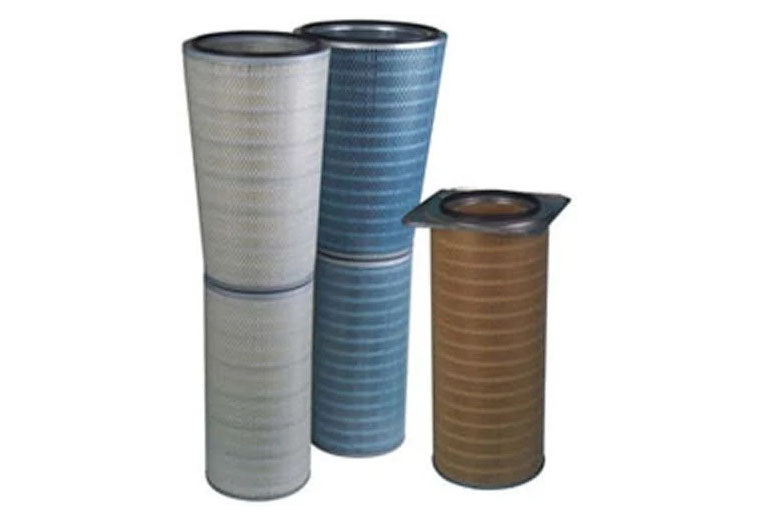
A gas turbine air intake filter is a crucial component of gas turbine systems used in power generation, industrial processes, and aviation. Its primary function is to remove airborne contaminants and particulate matter from the incoming air before it enters the gas turbine. The filter plays a critical role in protecting the turbine from damage, ensuring optimal performance, and extending the equipment's operational life.
Gas turbine air intake filters are specifically designed to capture and remove particles, such as dust, dirt, pollen, soot, and other contaminants present in the ambient air. These filters are constructed with high-efficiency filter media that can effectively trap and retain particles of various sizes, ensuring the cleanest possible air enters the turbine.
The filter media used in gas turbine air intake filters are typically made of synthetic fibers, often treated with specialized coatings to enhance filtration efficiency. The filter media may be pleated or layered to increase the filtration area and maximize particle capture. The filter media's selection and design depend on factors such as the desired filtration efficiency, airflow capacity, and the environmental conditions in which the gas turbine operates.
Gas turbine air intake filters are housed in filter assemblies or filter houses specifically designed for the gas turbine system. These assemblies include a filter housing or frame that holds the filter media and provides support and a secure enclosure for the filter element. The filter housing is typically made of corrosion-resistant materials, such as galvanized steel or aluminum, to withstand environmental conditions and ensure durability.
One of the critical considerations in gas turbine air intake filter design is the filter's efficiency and its ability to minimize pressure drop. High-efficiency filters capture a larger percentage of particles, ensuring cleaner air enters the gas turbine. However, higher filtration efficiency can lead to increased pressure drop across the filter, which can impact the gas turbine's performance. Balancing filtration efficiency with acceptable pressure drop levels is crucial in filter design.
Gas turbine air intake filters require regular maintenance to ensure their optimal performance. Periodic inspections, cleaning, and filter replacements are necessary to prevent excessive pressure drop and maintain the filter's ability to capture particles effectively. Filter condition monitoring systems, such as differential pressure gauges or indicators, are often employed to monitor the pressure drop across the filter and provide indications when maintenance is required.
Effective gas turbine air intake filtration is vital for several reasons. Firstly, it protects the gas turbine's sensitive components, such as compressor blades and turbine vanes, from damage caused by airborne particles. Secondly, clean air intake helps maintain the gas turbine's efficiency and performance by preventing fouling and erosion of turbine components. Lastly, it contributes to reducing maintenance costs, improving reliability, and extending the operational life of the gas turbine system.
In summary, gas turbine air intake filters are essential components in gas turbine systems. They capture and remove airborne contaminants and particulate matter, ensuring clean air enters the gas turbine. Gas turbine air intake filters protect the turbine from damage, enhance performance, and extend operational life. Proper maintenance and monitoring of these filters are crucial to ensure their optimal performance and efficient operation of gas turbine systems.